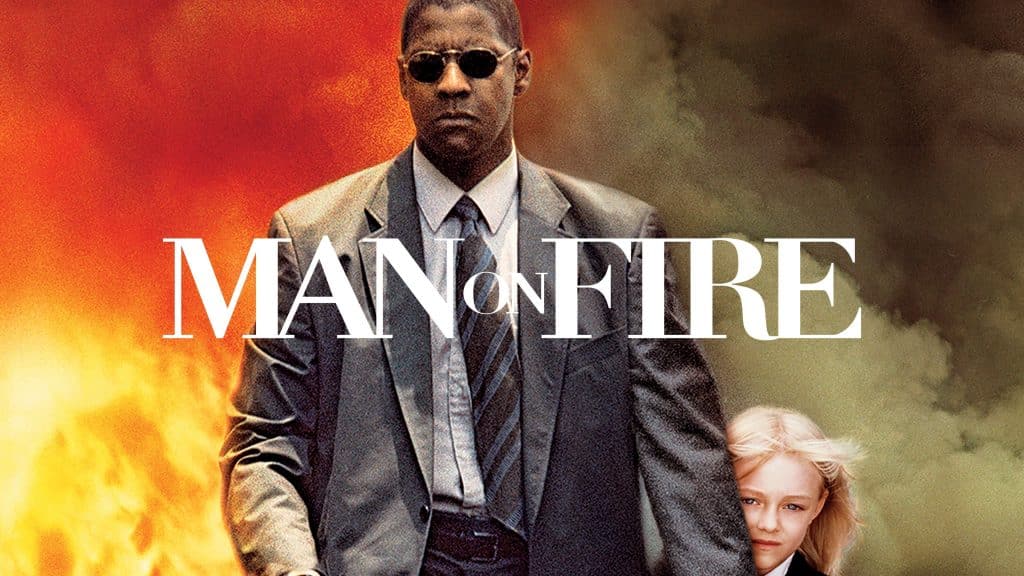Is Man On Fire A True Story? Fact Vs. Fiction
Is the searing intensity of Man on Fire rooted in real-life events? The answer, while perhaps disappointing to some, unveils a fascinating journey through adaptation, inspiration, and the enduring power of storytelling. The gripping narrative of a broken man finding redemption through protecting a young girl has resonated with audiences worldwide, leaving many to wonder about the origins of this compelling tale.
Man on Fire, the 2004 action thriller starring Denzel Washington as John Creasy, captivated viewers with its brutal depiction of kidnapping and revenge in Mexico City. Directed by Tony Scott, the film showcases Washington's powerful performance as a former CIA operative struggling with PTSD and alcoholism. His world is transformed when he takes on the role of bodyguard to young Pita Ramos (Dakota Fanning), forming an unlikely bond that reignites his will to live. When Pita is kidnapped, Creasy embarks on a ruthless and relentless quest to bring her back, leaving a trail of bodies in his wake.
| Category | Details |
|---|---|
| Film Title | Man on Fire |
| Release Year | 2004 |
| Director | Tony Scott |
| Lead Actor | Denzel Washington as John Creasy |
| Based on | 1980 novel "Man on Fire" by A.J. Quinnell (Philip Nicholson) |
| Screenwriter | Brian Helgeland |
| Reference | IMDb |
While the film's emotional core resonates deeply, John Creasy is not based on a real person. The character originates from the 1980 novel of the same name by A.J. Quinnell, a pen name used by British author Philip Nicholson. While Nicholson drew inspiration from real-world events, such as the increasing prevalence of kidnapping in Italy during the 1970s, Creasy himself is a product of fiction. The author crafted a complex character grappling with inner demons, a man seeking solace in the bottle and finding unexpected purpose in protecting Pita. This fictional foundation allows for the dramatic narrative arc and extreme actions that drive the film's plot.
It's important to distinguish between "based on a true story" and "inspired by true events." While Man on Fire isn't a direct retelling of a specific incident, the context of its creation lends credence to its themes. Kidnapping, unfortunately, remains a global concern, and the fear and desperation felt by families facing such a crisis are undeniably real. Nicholson tapped into this universal fear, crafting a story that explores the lengths one might go to protect a loved one. The film, in turn, amplifies this emotional core, visualizing the raw intensity of Creasy's determination.
Furthermore, the films exploration of corruption and the breakdown of societal structures in Mexico City adds another layer of realism. While fictionalized, the portrayal reflects the complexities and challenges faced by many communities grappling with organized crime and violence. This backdrop serves to heighten the stakes and underscore the desperation driving Creasys actions.
Interestingly, Man on Fire is not the first adaptation of Nicholson's novel. A 1987 version, starring Scott Glenn as Creasy, offers a different interpretation of the story, set in Italy. Comparing the two adaptations reveals the evolving landscape of action thrillers and the different approaches filmmakers take to translate a novel's essence to the screen. Both versions, however, showcase the enduring appeal of the core narrative: the transformative power of connection and the lengths one will go to protect those they care for.
The character of John Creasy, though fictional, continues to resonate with audiences because he embodies primal emotions and desires for justice. Denzel Washingtons portrayal infuses the character with a quiet intensity and vulnerability that makes his transformation all the more compelling. The films exploration of themes like redemption, vengeance, and the corrupting influence of violence ensures its enduring relevance.
While some may be disappointed that Man on Fire doesnt recount a specific true story, understanding its origins adds a layer of appreciation for the creative process. The film, while a work of fiction, draws power from real-world anxieties and explores universal themes of love, loss, and the fight for justice. The enduring fascination with Creasys character speaks to the power of compelling storytelling and the human capacity for both great darkness and profound love.
Man on Fire stands as a testament to the power of adaptation. By taking a fictional story rooted in the anxieties of its time, Tony Scott and Denzel Washington crafted a cinematic experience that continues to resonate with audiences today. It reminds us that while truth can be stranger than fiction, sometimes fiction can illuminate deeper truths about the human condition.



Detail Author:
- Name : Prof. Daren Considine
- Email : doyle.twila@hotmail.com
- Birthdate : 1976-05-19
- Address : 46159 Tiana Mills Fletcherburgh, SD 43521
- Phone : 848-660-2313
- Company : Swaniawski PLC
- Job : Coroner
- Bio : Qui cum doloremque aut. Unde occaecati temporibus architecto et. Ipsam minima molestiae odit voluptatem alias quas ut. Recusandae et aut eaque cumque.